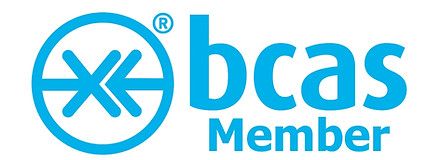Keeping your air conditioning system compliant
If you use air conditioning on your premises, you need to be aware that there are compliance obligations that might apply to you. Based in Oxfordshire, BCAS can advise on what you need.
Over 35 years' specialist experience
Expert advice and support
Working with premium brands
Full health and safety accredited
F-Gas compliance
F-Gas regulations were introduced to reduce and control the emissions caused by refrigerant gases. With some having a Global Warming Potential (GWP) of up to 23,000 times greater than CO₂, the release into atmosphere of F-gases (fluorinated gases) has a powerful impact on climate change and is also illegal.
If your premises are fitted with an air conditioning system that has a CO₂ equivalent charge of 5 tonnes or over, you have a legal requirement to ensure that your equipment is F-Gas compliant. Failure to do so is a criminal offence and can result in substantial fines.
It is worth noting that the obligation to comply with F-Gas is on the “operator who uses the equipment”, which is not necessarily the owner. This means that if a building is leased, it is the tenant who is liable.
BCAS is F-Gas certified by REFCOM and is able to provide a maintenance service that will keep you fully compliant.
For more information on F-Gas legislation, visit the
Gov.uk website.
TM44 - a legal requirement with the potential to reduce your energy costs
As a user of air conditioning, there could be further legislation that applies to you, in addition to F-Gas laws. ERB (Energy Performance of Buildings) regulations mean that you have a duty of care relating to the energy-efficient operation of the air conditioning system you use.
For systems with a combined cooling capacity of over 12kW, it is a legal requirement to have a TM44 inspection carried out every 5 years.Inspections are designed to improve efficiency and reduce energy consumption, operating costs and carbon emissions. An energy assessor will identify how the existing systems can be improved or whether there are opportunities to replace older, less efficient, or oversized systems, with new energy-efficient equipment.
Inspections can help you to fulfil the objectives of an environmental and sustainability plan, but they are also mandatory and failure to comply can result in severe financial penalties.
BCAS can perform an assessment for you using our fully qualified, independent consultants. We can also implement any recommended requirements, if required. Further guidance on TM44 inspections can be found on the Gov.uk website.






